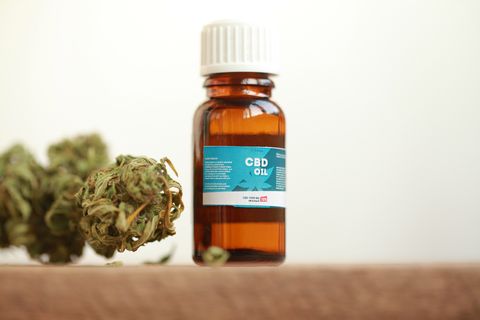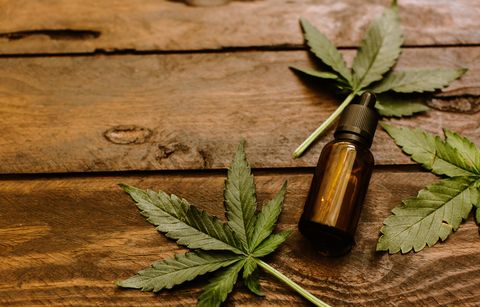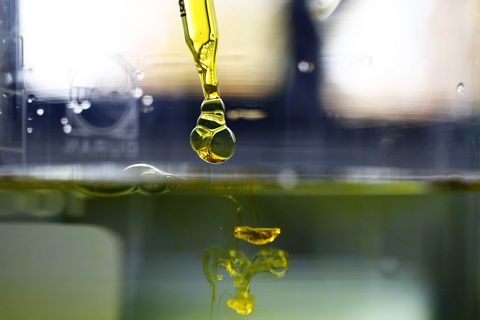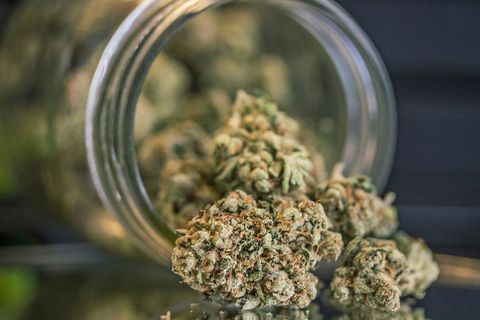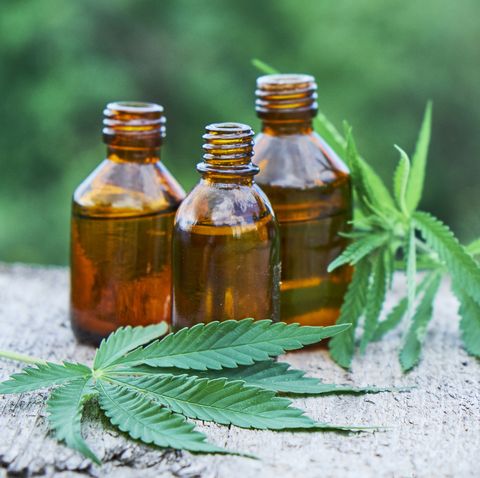
You might have seen the headlines at the end of September: For the first time in 46 years, the government’s top drug enforcement agency shifted its stance on marijuana. The new regulations involved cannabidiol, or CBD, the cannabis-derived compound with a plethora of purported health benefits — and no high.
The U.S. Drug Enforcement Administrations’s big announcement came roughly three months after the Food and Drug Administration approved Epidiolex, an epilepsy drug containing a purified form of CBD oil derived from marijuana. Because marijuana is a Schedule I controlled substance, the drug’s approval gave the DEA a 90-day deadline to tweak its policy. Some experts predicted the DEA would completely reschedule CBD — but they were wrong.
“I think they were hopeful that that’s what was going to happen,” Special Agent Melvin Patterson, an official DEA spokesperson, told MensHealth.com. “But that was never anything that was being considered at all.”
So what did the DEA actually do? Here’s what we learned from Patterson about the DEA’s stance on CBD.
Getty ImagesOlegMalyshev
First things first: The DEA did not reschedule CBD.
The agency only rescheduled CBD drugs that have been approved by the FDA, and that contain no more than 0.1 percent THC — and for now, that’s just Epidiolex. The DEA moved it to the least restrictive category of the Controlled Substances Act.
“It wasn’t CBD. I think a lot of people have been making that mistake,” Patterson said. “It’s a substance that contains CBD.”
So what does that mean for CBD on the whole?
“From the DEA’s perspective, CBD is still a schedule 1 substance,” Patterson said.
In other words, CBD is still banned by the feds — classified as a substance “with no currently accepted medical use and a high potential for abuse.”
Getty ImagesVictoria Bee Photography
Should CBD users be worried about the DEA coming after them?
“I don’t think that’s the focus of DEA,” Patterson said. “DEA goes after the largest drug traffickers that exist … We’re going after the large drug traffickers, not end users.”
So don’t worry, the feds aren’t going to come barging through your door to take away your CBD gummies.
So many people say CBD has improved their health — does that count toward rescheduling?
The DEA won’t reschedule CBD products unless they go through a ton of research, like with Epidiolex.
“[The FDA] went through and established a process to make sure that they had a product that was going to be safe and healthy for people that suffer from those seizures, as opposed to people that were just self-treating themselves with something that they didn’t know,” Patterson said.
Getty ImagesBloomberg Creative Photos
Would it be possible, at some point in time, for the DEA to completely reschedule CBD?
“It would,” Patterson said. “That’s something they’re going to have to take under advisement.”
An international drug treaty currently stands in the way of the DEA completely rescheduling CBD — but if that changes, Patterson said a rescheduling is “something that’s possible.”
If CBD were rescheduled, what would that mean for other cannabis products?
“That would create a parting of the ways,” Patterson said. “In other words, you’d still have smokeable marijuana that would remain a schedule 1, and then all of CBD — if that were to theoretically happen — then that would be rescheduled.”
Getty ImagesOksana Smith / EyeEm
For now, what should people know about CBD?
Any uncontrolled substance has the potential to hurt you, so you should always know what you’re putting in your body. “There are lots of products on shelves right now that state that they have CBD, [but] a lot of them probably don’t have CBD, or they have such a small amount that it’s not going to be effective,” Patterson said. “It’s just not knowing what it is you’re getting.”
He added that it’s important for people to understand state-by-state CBD regulations, because they differ from federal law. To find out whether CBD is legal in your state, check out NORML’s interactive map.
Source: Read Full Article
